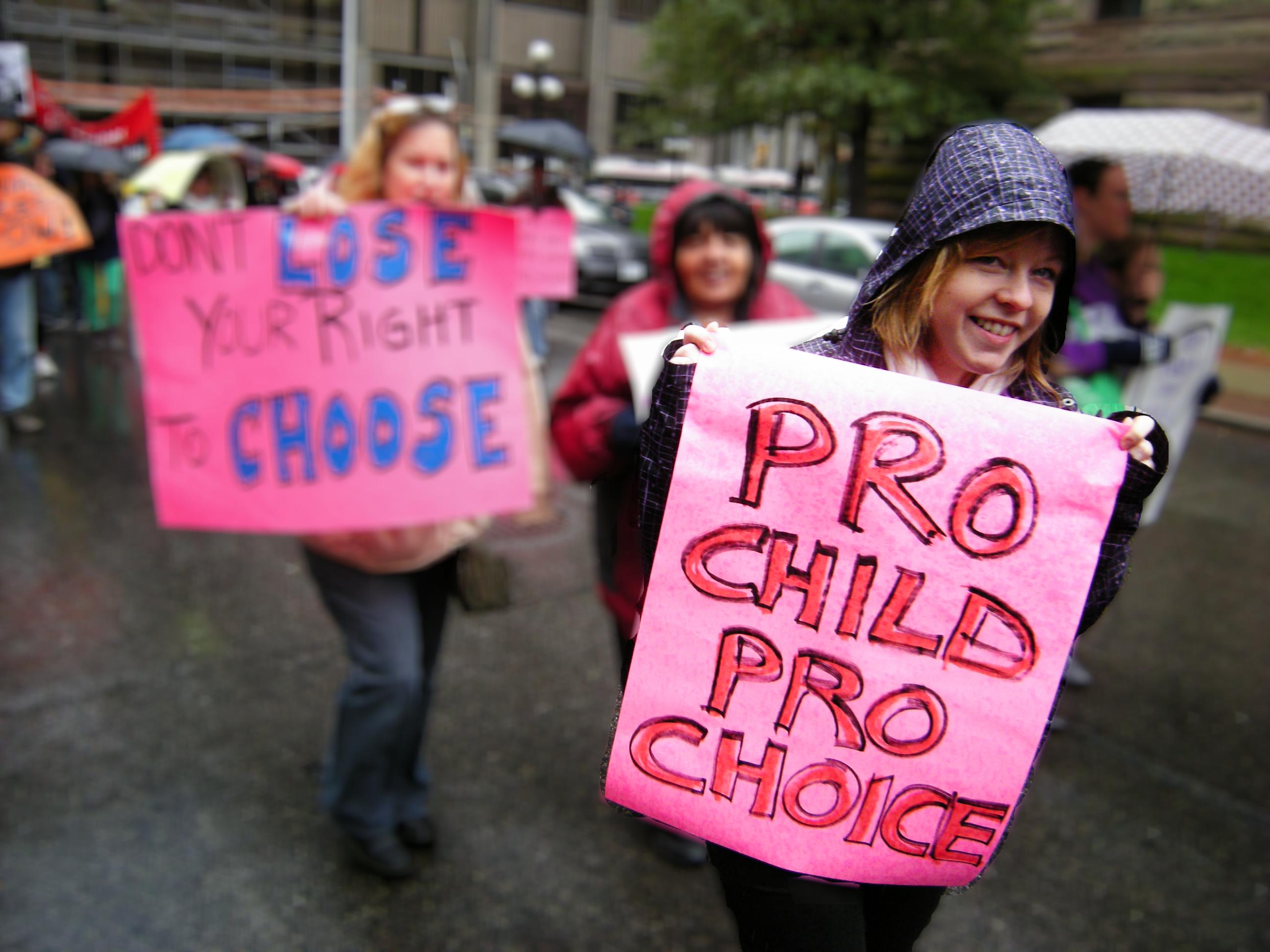Pro-choice groups came to Old City Hall in Toronto on Saturday to condemn unequal access to reproductive services across the country.
In Prince Edward Island, women still have no access to abortion. And women living in New Brunswick are forced to pay for their clinic abortions.
“The Conservative government refuses to implement the Canada Health Act to stop these inequities,” said Michelle Robidoux, a spokesperson for the Ontario Coalition for Abortion Clinics.
“And Conservative members of Parliament continue to introduce anti-abortion private members’ motions while taking away health care for refugees.”
Saturday’s rally in Toronto was part of a Pan Canadian Day of Action that saw similar protests held in other Canadian cities to demand reproductive health care for all, including refugees.
Women realize that, once again, they’ve reached a critical point in their quest for reproductive justice and the right to control their own bodies.
Last week in Ontario, three Conservative MPP’s sponsored a news conference to stop public funding of abortions.
“It is an absolute slap in the face to every woman in this province and this country,” said Carolyn Egan, founding member of the Ontario Coalition for Abortion Clinics.
In the 1980‘s, when women fought hard to amend the federal laws on abortion, they purposely viewed abortion within a reproductive justice perspective.
“It is the only way that we are going to win broad popular support, keep what we have gained and go forward.”
But, said Egan, women can’t have real choice without decent jobs, affordable and accessible childcare, and freedom from coerced sterilization.
Back then, therapeutic abortion committees only performed abortions if women agreed to sterilization. “This was very real,” she said.
So women demanded an end to those threatening practices. At the same time, they fought to have birth control facilities in their communities.
“All of this is what’s needed if we are to have true choices in our lives, if we are to have true reproductive justice.”
As pro-choice groups rebuild their movement, they’ve made it clear that this is necessary in order to move forward and take on the pro-life forces who are lobbying to defund abortion in Ontario.
If that happens, young women, rural women, low income women and newcomers will be most vulnerable.
“And we’ll go back to a system where (only) upper class women with private gynecologists who can pay the sum will have the right to abortions,” said Egan.
“And everyone else will be denied.”
A few years ago, human rights activist Niaz Salimi drove past a group of anti-choice activists in northern Toronto who were shouting and waving their placards in front of an abortion clinic.
“I rolled down the window and shouted at them,” said Salimi. “I told them to go home and be ashamed of their act.”
For Salimi, their actions ran contrary to democracy.
“These people were not there to claim their rights, but to abolish mine,” she said.
“No one will ever force an anti-choice to act against their beliefs. But they have the audacity to make a decision for the rest of my life.”
As problematic and dangerous as these groups are, Salimi said the Conservatives are even worse.
Without adequate government funding and accessibility, it means little to women that abortion is legal in Canada.
Especially those living in rural communities. Where pregnant teens have no way of getting to a clinic because it’s miles from where they live.
Where sexually active teens are afraid to purchase contraceptives from the local pharmacy because everyone knows their family. And there’s no place to get condoms free or privately.
Where some doctors have refused contraceptives to unmarried women.
Disability rights activist Melissa Graham, who has been in a wheelchair her entire life, remembered going to her family doctor when she was 17-years-old and asking for birth control.
“And the first question he asked was ‘Why?’,” said Graham. “No 17-year-old should ever be asked why they need birth control.”
Graham pointed out that people with disabilities have historically been used to hold back the abortion rights movement.
“And we don’t want to be in that position any more,” she said.
CAW Communications Director Shannon Devine was only 9 years old when the Supreme Court ruled Canada’s abortion laws unconstitutional.
“Many women of my age have taken for granted the right to an abortion,” said Devine. “And understood it as an inalienable right.”
So understandably, she’s outraged at the recent attempts to call this right into question.
“It’s especially galling that it’s coming from a middle-aged, privileged, out of touch man, who has no chance of ever getting pregnant,” she said.
“It’s always guys like him who are telling women what they should and shouldn’t be doing.”
Devine suggested that these men would do more good if they put their efforts into creating a universal, publicly funded national childcare plan.
“And that is if they care as much about kids as they say they do,” she said.




